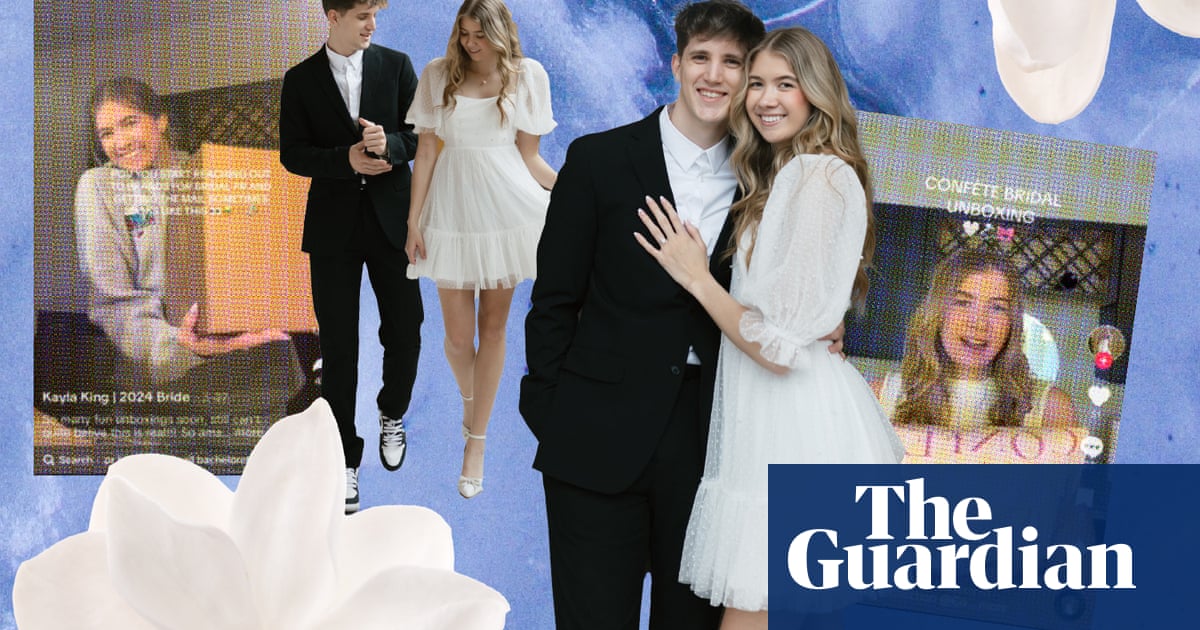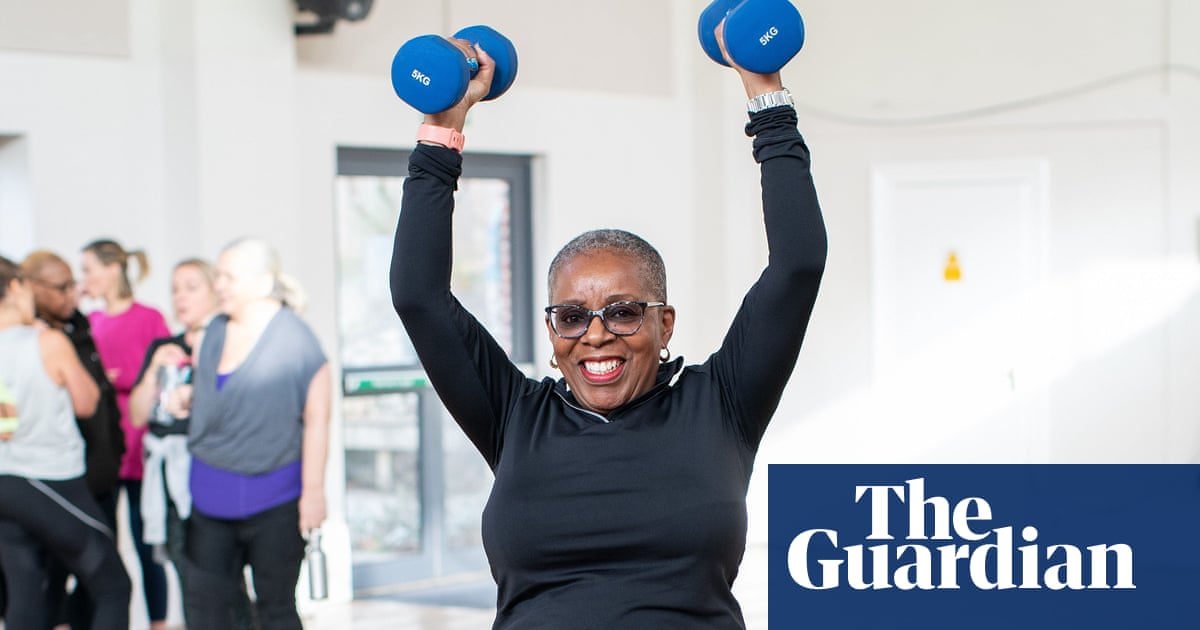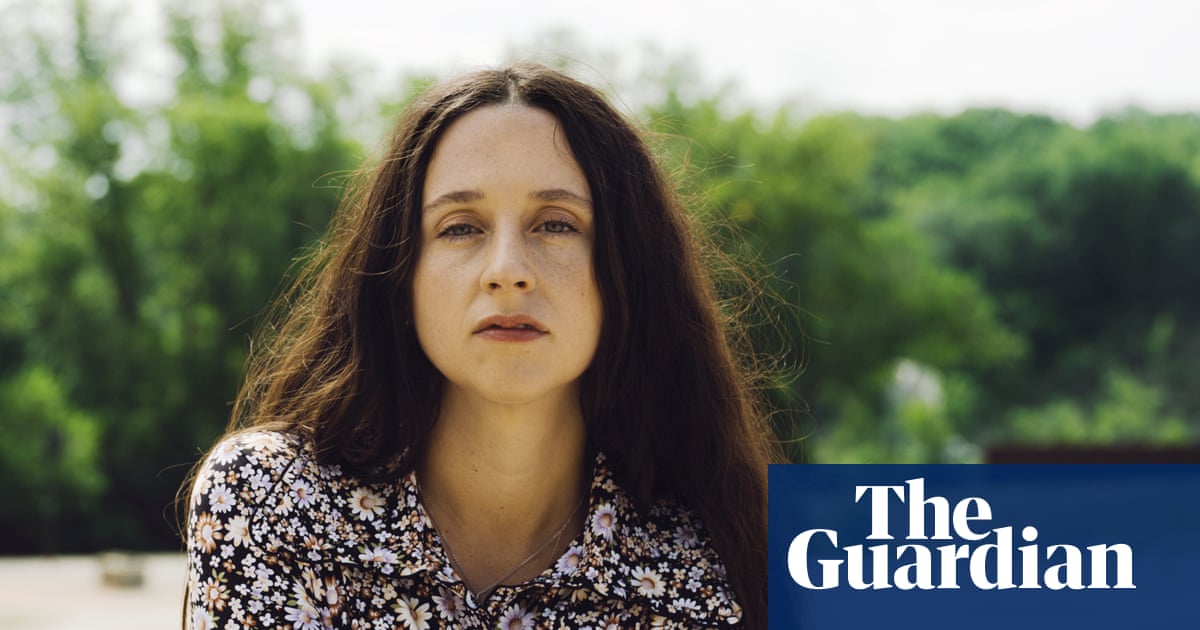
Soon after Kayla King’s fiance proposed to her on a cliff in Laguna Beach, King, 21, noticed a new kind of TikTok content filling her For You page: wedding-themed posts from influencers planning their bachelorette parties and big days. King watched these influencer brides show off tons of swag from brands – everything from venue decorations to personalized invitations – that they’d received for free in exchange for posting; some were even paid to post about the brands. Though she’s decidedly not an influencer, with just over 750 followers on her personal TikTok, King wondered: how hard could it be to get some free stuff for herself?
It couldn’t hurt to try. So King, who lives in Phoenix and works in social media management for college sports, made a new account specifically for her wedding journey and started contacting bridal- and bachelorette-friendly brands to request free goodies.
King wasn’t sneaky about her plan – she also decided to make TikTok tutorials to show other brides how they could ask for their own things. “Day one: emailing brands for products to include in my bachelorette gifts to my bridesmaids,” she wrote in the caption for a video posted in February. Sitting in her bedroom wearing a baggy red sweatshirt, King described how to reach out to the nail polish line Olive & June, pimple patch brand Good Molecules, and Celsius energy drinks. There wasn’t much to it: say you’re a fan of the brand, you’re getting married, and you’d like to receive product for your bachelorette/bridal shower/rehearsal dinner/wedding for free, in exchange for a post.
“I have eight girls, so cost-wise it gets pretty expensive,” King said. Her strategy paid off: Olive & June sent a package filled to the brim with more than enough cuticle serums, press-on sets, polishes, and nail art stickers for King and her bridal party.
Since then, she’s received free products from Bride Tribes, an Australian company that makes robes for wedding parties – they sent her two sweatsuits worth $128 each. She also received boxes of pearl jewelry from Joey Baby, pasties from Nipsey Daisy, which go for $17 each, and three white dresses from Confête, including one made from tulle that retails for $120. As more swag came in, King posted about her hauls. She estimates she’s received around 45 packages from brands.
“I’ve definitely saved a lot of money,” she said.
King has worked her wedding TikTok account from zero followers to just over 2,600. Not to sound rude, but that’s not a large following, considering the parameters for “micro-influencer”: a small-time, non-celeb who posts mostly about everyday life, with a following starting around 10,000. King knows she isn’t Kylie Jenner. “It was really a shot in the dark, and super random, but I think I had pure luck and ended up hitting the algorithm really well, because the brand accounts started seeing and engaging with me,” she said.
King started what the beauty trade publication Glossy called a “micro-movement”: other brides-to-be adopted her strategy and began reaching out to brands, too. Publicists report that they’ve been flooded with requests for products from future brides or their maids of honor, none of whom are influencers in the traditional sense.
“We just saw a huge influx of emails come in through our press, social, and influencer inboxes,” said Natalie Pace, head of communications at the razor brand Flamingo. After all, many women prefer to shave for weddings and adjacent events, especially if they’re wearing strapless or almost-naked dresses (sorry, hair positivity folks). “We saw something like upwards of 60 emails come in one week.”
Pace said that these emails weren’t daunting, and that the Flamingo staff appreciated a chance to work directly with brides. “A lot of our customers are at the age where they’re getting married, and bachelorette parties are something we think about a lot as a brand,” she said.
Flamingo sent product to some of the brides – Pace wouldn’t reveal how many – and started a sweepstakes for others, giving away “goodie bag kits” to 25 winners. The brand also offered a discount to brides who sent them emails. Beauty Pie, a subscription-based beauty brand, offered a similar coupon, as reported by Glossy.
Those who are in the know understand it’s common practice for magazine editors, beauty bloggers and the like to request wedding freebies from their industry contacts. In 2018, the blogger-turned-influencer Chiara Ferragni blazed the path for wedding sponcon. At least, most fashion industry insiders assumed that everything from the charter plane, which transported guests to and from the venue, to her three Dior dresses were gifted to the influencer in exchange for her posting about it.
A year later, a similar plan by the former Goop employee Marissa Casey Fuchs backfired. At first, it seemed like her boyfriend had plucked her away for a “surprise” trip she knew nothing about, which culminated in a proposal. Except, it was later revealed that Fuchs, now Grossman, had pitched the whole trip to various brands ahead of time, hoping to score freebies. Cue the backlash from viewers upset that her shock was manufactured.
Jaime Maser Berman is a longtime beauty publicist in New York and head of Maser Communications. In 2003, she worked in-house for a small cosmetics brand. At the time, a writer reached out to her asking for product for the entire wedding party and a special goodie bag for out-of-town guests. “I remember I was completely flabbergasted, and it felt like an audacious ask,” Berman said. “But now, looking back, I think, damn, she was ahead of her time.”
Regular folks have caught on to the schtick. “Initially, we responded positively to one request, flattered by the attention,” said Richard Gallo, a publicist in New York who works with beauty brands. “However, as the trend became apparent, it started feeling more like exploitation than general interest in our brand. It prompted me to create an inbox rule for keywords like ‘bride’, ‘maid of honor’, and ‘bachelorette’.”
A true brand enthusiast, Gallo said, “shouldn’t need to pitch themselves for freebies; there should already be a mutual appreciation”.
“It’s fascinating to see how now everyone wants to feel like a celebrity on their wedding day,” said Kirbie Johnson, a beauty writer and podcaster based in Los Angeles. “Right now, the term ‘influencer’ has a negative connotation, because people have a lot of distrust about undisclosed ads. When you have a regular person raving about a product and they haven’t been paid to do it, you’re able to trust them more.”
Blame influencer culture excess all you want, but ultimately, weddings are very expensive. The industry website the Knot revealed that the average US nuptials cost a whopping $35,000 in 2023. A Guardian call-out in March asked readers if they could afford their weddings; 291 responded, and 20 said they went into debt footing the bill. Who wouldn’t want to cut a few corners?
Bride-to-be King noted that many of the brands she sent inquiries to clearly listed their press emails on their website, and she is “adamant” that she only believes it’s ethical to reach out to larger businesses that have the budget to send free samples. “I’m just sharing the wealth for brides and their friends,” she said.
What she really wants is to demystify the quid-pro-quo process. “I’m just 21, sitting at home emailing some brands that I really liked,” she said. “It’s not special. I don’t think we need to gatekeep anything.”












